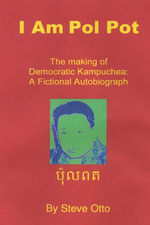From Maoistroad/ Revolutionary Proletarian
Feminist Movement Italy:
As RPFM, with great joy
and emotion we bring here today in occasion of this celebration, the strong
salute of our women comrades, labourers, proletarian women which are struggling
in our country, to the popular masses that are rebelling and fight in Brazil to
advance along the path for conquering a new power.
We honor all martyrs and
women martyrs which have fallen fighting and combating and have raised the red
flag of the revolutionary struggle.
On the 50th anniversary
of the Great Proletarian Cultural Revolution in China, we want to first honor
the comrade Chiang Ching, militant and leader of the Chinese Communist Party,
whose life was always at the service of the revolutionary struggle of the
masses for the construction of a society free from exploitation and oppression
of the ruling system, to advance along the road to communism.
Great was the Chiang
Ching commitment on the issue of women in order to develop the struggle for
genuine liberation from social and family oppression.
The ruling classes have
deliberately distorted the meaning of life and death of Chiang Ching and, in
general, on her you know the lies and slanders reported by the bourgeois press.
It is obvious that the oppressors have hated her, because today, as then,
Chiang Ching is a living and shining beacon for all, a comrade and communist
leader who embodied fully the meaning of "It is raight to rebel" and
that as a woman also concretely implemented the slogan "unleash the fury
of women as a mighty force for revolution"… showing that this is possible!
Chiang Ching had to
fight not only against obscurantism and patriarchy in Chinese society, but also
against the internal one at the same CCP which, for a long time, until the
'60s, prevented her from having a public political role.
Always on the side of
Mao, she fought hard against everything that wanted to hinder and prevent the
revolutionary development of the masses in China, the construction of
socialism; and it was mainly in the Great Proletarian Cultural Revolution
launched by Mao in May 1966, which brought to light his great firmness and
ideological militancy, always strenuously defending it until her death, against
the revisionists, even inside the Party, which aimed to did the capitalist
restoration in China.
In the GPCR, Chiang
Ching was at the fore as a leader comrade on several fronts. She animated and
led many young rebels, the Red Guards, in the hard fight against the followers
of the capitalist road, she difended in the deepest way the right of the masses
to storm the heavens, to defy tradition and sweep away the old reaction in
every field; she fought with great enthusiasm against revisionism, intervening
decisively in the superstructural field of culture and education, giving a
great contribution also to the revolution in the arts, in particular in the
context of the theater, according to the proletarian revolutionary line that
placed as its centre the mass action against the revisionist line that hiding
behind an apparent ‘new’, continued to defend the privileges of class.
After Mao's death for 15
long years she was imprisoned by the revisionists who, with a coup, took power.
But even in prison Chiang Ching with great strength and pride continued to
rebel and claim the rightness of the GPCR, holding high the red flag of mlm, of
communism, until his captors, unable to bend his will, left she die.
But her death does not
deleted in any case her immeasurable value and her being an example for women
and all humanity, her being one of the greatest communist revolutionary leaders
of our time, to which women must look and especially women comrades, women
revolutionaries, women communists if really we want to storm the heavens.
Today in China, the
Maoist left that is working to resume the path traced by Mao, looks and refers
to Chiang Ching, and thousands are the testimonies of revolutionary love that
even with much difficulty come to light.
Who does not value the
role of Chiang Ching in the GPCR, does not recognize in reality the role of the
revolutionary women's movement in the PCR, and raises the flag of the GPCR to
scuttle the GPCR.















